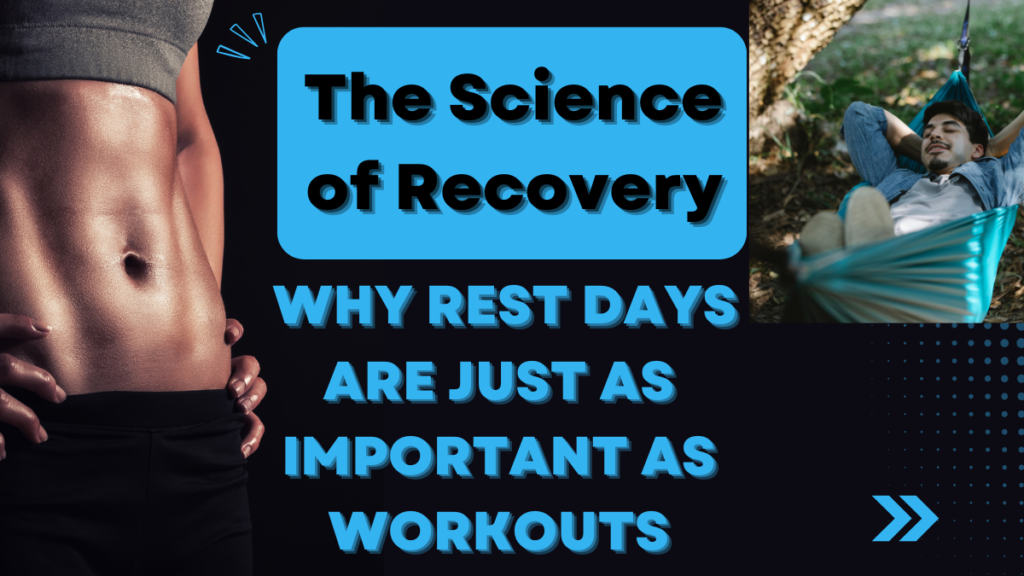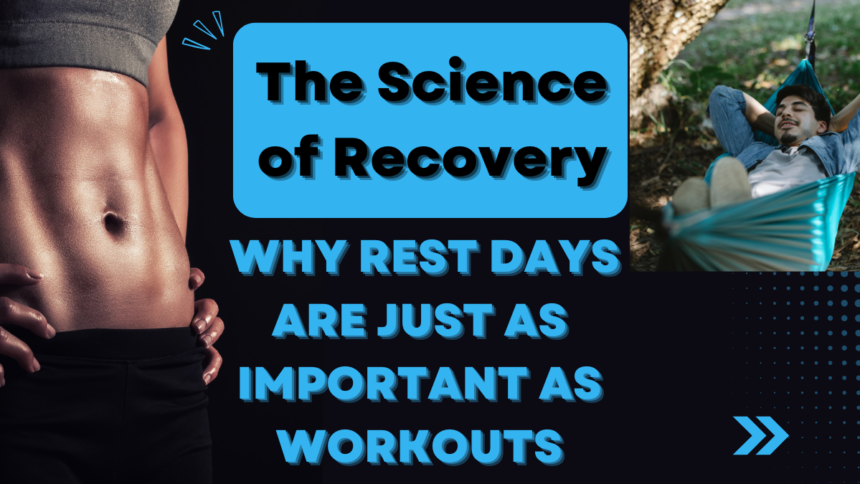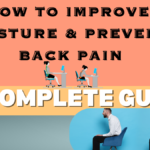Science of Recovery : Rest Days Are Just as Important as Workout days
You’ve been crushing your workouts—lifting heavier, running farther, pushing harder. But despite your progress, you hit a wall. Your energy dips, your muscles ache constantly, and your performance plateaus. What’s missing? Rest days.
Many fitness enthusiasts see recovery as “lazy” or unnecessary, but science tells a different story. Rest isn’t just about avoiding burnout—it’s when your body repairs, rebuilds, and grows stronger. In this post, we’ll dive into the science of recovery, why skipping rest sabotages your gains, and how to optimize your rest days for maximum results.

What Happens to Your Body During Rest Days?
When you work out, you create microscopic tears in your muscle fibers. This damage isn’t bad—it’s how muscles grow. But the magic happens during recovery, when your body:
- Repairs muscle tissue (making it stronger)
- Replenishes energy stores (glycogen in muscles)
- Balances hormones (like cortisol and testosterone)
- Reduces inflammation
A study in Sports Medicine found that athletes who prioritized recovery improved performance 20-30% more than those who overtrained.
5 Science-Backed Reasons You Need Rest Days
1. Prevents Overtraining Syndrome
Pushing too hard without rest leads to:
- Chronic fatigue
- Weakened immunity
- Increased injury risk
- Mood swings (irritability, depression)
Tip: Listen to your body—persistent soreness, insomnia, or lack of motivation signal overtraining.
2. Boosts Muscle Growth
Muscles grow during rest, not workouts. Without recovery:
- Protein synthesis slows.
- Growth hormone levels drop.
Tip: Aim for 48 hours of recovery between intense sessions for the same muscle group.
Video Credits
3. Enhances Performance
Rest restores:
- Glycogen stores (energy for muscles)
- Nervous system function (better coordination, strength)
A Journal of Strength and Conditioning Research study found that athletes who took strategic rest days lifted heavier and sprinted faster.
4. Lowers Injury Risk
Fatigued muscles = poor form = injuries. Rest days help:
- Heal micro-tears in tendons/ligaments.
- Prevent stress fractures.
Tip: Swap intense workouts with active recovery (yoga, walking, swimming).
5. Improves Mental Focus
Constant training drains mental stamina. Recovery:
- Reduces mental fatigue.
- Increases motivation long-term.
How to Optimize Your Rest Days
1. Prioritize Sleep
- 7-9 hours nightly is non-negotiable (growth hormone peaks during deep sleep).
- Try 10-minute naps post-workout for extra recovery.
2. Hydrate & Refuel
- Drink ½ your body weight (lbs) in oz of water daily.
- Eat protein-rich meals (chicken, tofu, Greek yogurt) to repair muscles.
3. Try Active Recovery
Light movement boosts circulation without strain:
- Walking
- Foam rolling
- Gentle yoga
4. Manage Stress
High cortisol (stress hormone) slows recovery. Try:
- Meditation
- Deep breathing
- Epsom salt baths
5. Listen to Your Body
- Sore for 3+ days? Take an extra rest day.
- Feeling sluggish? Swap HIIT for stretching.
Myths vs. Facts About Rest Days
❌ Myth: “More workouts = faster results.”
✅ Fact: Progress happens during recovery, not just training.
❌ Myth: “Rest days make you lose fitness.”
✅ Fact: Fitness gains last weeks without training (study in Medicine & Science in Sports & Exercise).
❌ Myth: “You should only rest if you’re sore.”
✅ Fact: Even without soreness, your nervous system needs recovery.
Signs You Need a Rest Day
- Persistent muscle/joint pain
- Elevated resting heart rate
- Insomnia or fatigue
- Loss of motivation
Final Thoughts: Train Smarter, Not Harder
Rest days aren’t “cheat days”—they’re essential for growth. Whether you’re a weekend warrior or elite athlete, recovery is what transforms effort into results.











